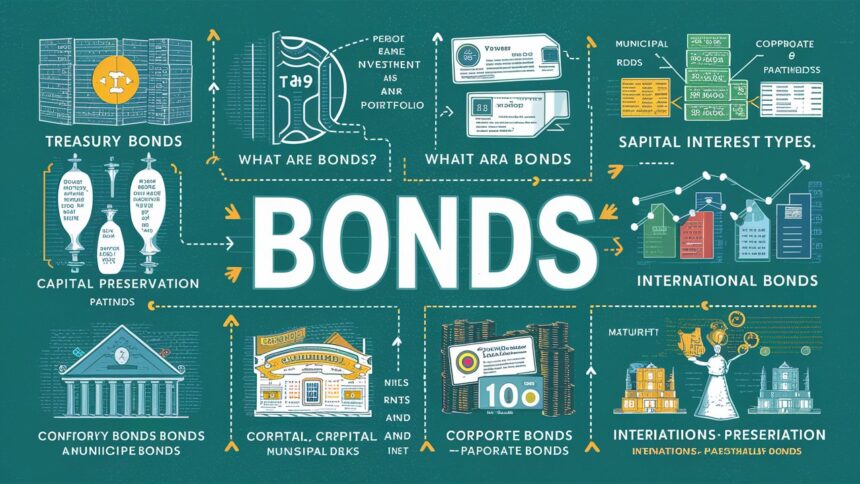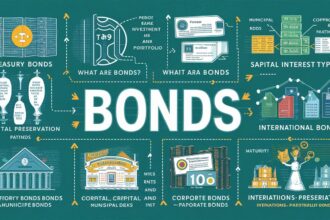Introduction
Bonds have long been considered a staple in a diversified investment portfolio, providing steady income and relative safety. However, with changing market conditions and economic factors, their appeal can fluctuate. This article delves into the current state of bond investments, weighing the pros and cons to help you decide if they are still a good fit for your financial strategy.
What Are Bonds?
- Definition: Bonds are debt securities issued by governments, municipalities, and corporations to raise capital. Investors lend money to the issuer in exchange for periodic interest payments and the return of the bond’s face value at maturity. The bondholder is essentially a creditor to the issuer, making bonds a form of loan from the investor to the issuing entity.
- How They Work: When an investor purchases a bond, they are buying a promise that the issuer will pay back the face value of the bond on a specific date, known as the maturity date. In addition to repaying the principal amount, the issuer agrees to make periodic interest payments, known as coupon payments, to the bondholder. These payments can be fixed or variable, depending on the terms of the bond.
- Types: Common types of bonds include:
- Treasury Bonds: Issued by the federal government, these are considered some of the safest investments because they are backed by the government’s credit.
- Municipal Bonds: Issued by state and local governments, these often come with tax benefits.
- Corporate Bonds: Issued by companies to fund various projects and operations, these typically offer higher yields but come with greater risk.
- International Bonds: Issued by foreign governments and corporations, these can offer diversification but come with additional risks, such as currency risk.
Benefits of Investing in Bonds
- Stable Income: Bonds typically offer fixed interest payments, providing a predictable income stream that can be especially valuable for retirees or those seeking steady cash flow.
- Capital Preservation: High-quality bonds, especially government bonds, are considered low-risk, helping to preserve capital. This makes them a safer investment compared to stocks, which can be more volatile.
- Diversification: Including bonds in a portfolio can reduce overall risk, as they often perform differently than stocks. When stock prices fall, bond prices may rise, providing a hedge against market downturns.
- Tax Advantages: Some bonds, such as municipal bonds, offer tax-free interest income, which can be particularly advantageous for investors in higher tax brackets.
Risks Associated with Bonds
- Interest Rate Risk: Bond prices inversely correlate with interest rates. When interest rates rise, the price of existing bonds typically falls because new bonds are issued at higher yields, making existing bonds with lower yields less attractive.
- Credit Risk: There’s a risk that the issuer may default on payments. This risk is higher with corporate and high-yield bonds. Investors must assess the creditworthiness of the issuer before investing.
- Inflation Risk: Inflation can erode the purchasing power of fixed interest payments. If inflation rates exceed the bond’s yield, the real return on investment can be negative.
- Liquidity Risk: Some bonds may be difficult to sell quickly without a loss in value, particularly in a volatile market or if the bond is issued by a smaller, less well-known entity.
Current Economic and Market Conditions
- Interest Rates: The current low-interest-rate environment, driven by central bank policies, has reduced the yield on many bonds. While this makes borrowing cheaper for issuers, it also means lower returns for bond investors.
- Inflation Trends: Rising inflation can negatively impact bonds by reducing the real return on investment. Investors must consider inflation-protected bonds, such as TIPS, to safeguard against this risk.
- Market Volatility: In times of economic uncertainty, bonds can provide a safe haven, although their appeal might wane if economic growth picks up. The flight to safety during turbulent times often boosts bond prices, albeit with lower yields.
Types of Bonds to Consider
- Government Bonds: U.S. Treasury bonds are considered very safe, though their yields are currently low. They are backed by the full faith and credit of the U.S. government, making them a low-risk investment.
- Municipal Bonds: These can offer tax advantages and are generally safe if issued by stable municipalities. They can be an attractive option for investors seeking tax-exempt income.
- Corporate Bonds: Offer higher yields but come with higher risk. Investment-grade bonds are safer than high-yield (junk) bonds. Evaluating the financial health and credit rating of the issuing corporation is crucial.
- Inflation-Protected Bonds: Treasury Inflation-Protected Securities (TIPS) can protect against inflation risk. The principal value of TIPS adjusts with inflation, ensuring that the real value of the investment is maintained.
Strategies for Bond Investment
- Laddering: Building a bond ladder involves purchasing bonds with varying maturities. This strategy can help manage interest rate risk by spreading out the investment over different periods, reducing the impact of rate fluctuations.
- Diversification: Spread investments across different types of bonds and issuers to mitigate risk. A well-diversified bond portfolio can help balance risk and return.
- Active Management: Regularly review and adjust your bond holdings based on market conditions and interest rate forecasts. This proactive approach can help optimize returns and manage risks effectively.
Alternatives to Bonds
- Dividend Stocks: Offer potential for income and growth, though with higher risk. They can be a good alternative for those seeking regular income but willing to accept more volatility.
- Real Estate: Can provide steady income and potential appreciation. Real estate investments, such as REITs, offer a way to diversify and earn rental income.
- Commodities: Investments like gold can hedge against inflation and economic uncertainty. Commodities can add another layer of diversification to an investment portfolio.
Conclusion
While bonds may not offer the high returns seen in equities or other asset classes, they remain a valuable component of a diversified investment portfolio. Their ability to provide steady income, preserve capital, and reduce overall portfolio risk makes them appealing, especially in volatile markets. However, investors must be mindful of the current economic environment, particularly interest rate trends and inflation, when considering bond investments.
FAQs
How do rising interest rates affect bond prices?
Rising interest rates cause bond prices to fall because new bonds are issued at higher rates, making existing bonds with lower rates less attractive.
What is the difference between investment-grade and high-yield bonds?
Investment-grade bonds have lower credit risk and are issued by stable companies or governments. High-yield bonds, or junk bonds, offer higher returns but come with greater risk.
Can bonds lose value?
Yes, bonds can lose value if interest rates rise, if the issuer defaults, or if the bond is sold before maturity at a lower price than its purchase price.
What are TIPS?
Treasury Inflation-Protected Securities (TIPS) are government bonds designed to protect investors from inflation. The principal value adjusts with inflation, and interest payments vary accordingly.
Are municipal bonds safe?
Municipal bonds are generally safe, particularly those issued by financially stable municipalities. They also offer tax advantages, making them attractive to certain investors.














